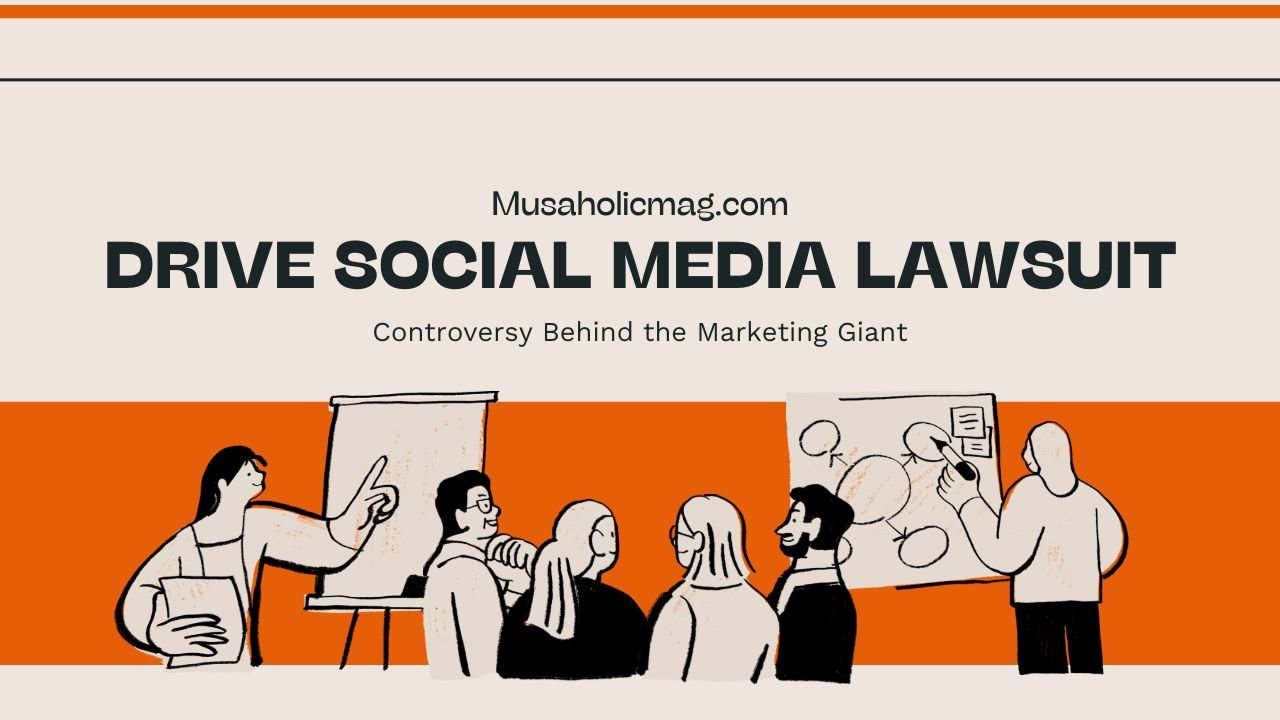In the fast-paced world of digital marketing, few names stand out like Drive Social Media. Known for its aggressive strategies and innovative tactics, this marketing giant has helped countless businesses grow their online presence. However, recent events have thrown a shadow over its reputation. A lawsuit has emerged, sparking heated debates and raising questions about ethical practices in social media advertising. As details unfold, both businesses and influencers are left grappling with the implications of this controversy. What exactly is happening behind the scenes at Drive Social Media? Let’s dive into the details unraveling this complex story.
The Controversy and Lawsuit
The Drive Social Media lawsuit has sparked intense debate within the digital marketing community. Allegations have emerged against the company, claiming unethical practices and misinformation in their promotional strategies.
Many clients allege that they were misled about service capabilities. Promises of guaranteed follower growth and engagement often fell short, leading to frustration and financial losses for businesses relying on these metrics.
Additionally, influencers have raised concerns over contractual obligations that seemed one-sided. Some reported feeling trapped by agreements that didn’t deliver as promised.
As news spread, trust began to erode among users trying to navigate the complex landscape of social media marketing. This controversy not only affects Drive Social Media but also raises larger questions about accountability in an industry marked by rapid change and fierce competition.
Allegations against Drive Social Media
The allegations against Drive Social Media have stirred significant controversy in the marketing world. Critics claim that the company engaged in deceptive practices to inflate engagement metrics for its clients.
Some influencers and businesses allege that they were misled about the effectiveness of campaigns. Reports suggest inflated follower counts, misleading analytics, and fake engagements. These tactics not only compromise trust but also impact brand integrity.
Furthermore, accusations point to a lack of transparency regarding service offerings. Many clients felt blindsided when results didn’t match expectations based on Drive’s assurances.
This situation raises questions about ethical standards within digital marketing agencies. The fallout could reshape how companies evaluate potential partnerships with social media firms moving forward.
Impact on Businesses and Influencers
The Drive Social Media lawsuit has sent ripples through the marketing landscape. Businesses that relied heavily on their services are now questioning their strategies. Many owners feel vulnerable after investing time and resources into campaigns promising engagement and growth.
Influencers, too, find themselves in a precarious position. Content creators who partnered with Drive may face uncertainty as brand trust wavers. Their collaborations could come under scrutiny, impacting future deals.
For some brands, this controversy serves as a wake-up call. It’s an opportunity to reassess partnerships and explore alternative marketing avenues. Others may choose to distance themselves entirely from Drive’s legacy.
As the situation unfolds, adaptability becomes crucial for both businesses and influencers alike. They must navigate this turbulent environment while safeguarding their reputations and bottom lines.
Response from Drive Social Media
Drive Social Media has faced the recent storm head-on. The company issued a statement addressing the allegations, emphasizing their commitment to transparency and integrity in all operations.
They stressed that they take these claims seriously and are cooperating fully with legal proceedings. Drive Social Media insists that their marketing practices adhere to industry standards, aiming to foster trust among their clients.
In addition, they have launched an internal review of their processes to ensure compliance with both ethical guidelines and legal regulations. This proactive approach aims not only to mitigate concerns but also to reassure stakeholders of their dedication.
The brand’s representatives have been vocal about wanting constructive dialogue with the community as they navigate this challenging period. Their focus remains on rebuilding relationships while ensuring such controversies do not arise in the future.
Lessons Learned from the Controversy
The Drive Social Media lawsuit highlights the importance of transparency in marketing practices. Businesses must ensure that their promotional strategies are clear and ethical.
Maintaining trust with clients is crucial. The fallout from this controversy shows how quickly reputations can be tarnished. Influencers and brands alike should prioritize ethical partnerships to foster genuine relationships with their audiences.
Additionally, it serves as a reminder for all companies to stay adaptable. The digital landscape evolves rapidly, and so do consumer expectations regarding authenticity and accountability.
Organizations need to invest in compliance training for employees. A well-informed team can help mitigate risks associated with misleading marketing practices and protect the brand’s integrity moving forward.
Conclusion
The Drive Social Media lawsuit has opened a Pandora’s box of discussions about ethics, accountability, and the power dynamics between marketing giants and their clients. As the case unfolds, it serves as a critical reminder for businesses and influencers alike to tread carefully in the ever-evolving digital landscape.
Transparency should be prioritized in all business dealings. The fallout from this controversy can encourage companies to re-examine partnerships and prioritize ethical practices over profit margins. The marketing world is changing rapidly; lessons from this lawsuit could shape future strategies.
As social media continues to influence our lives significantly, stakeholders must advocate for clear standards that protect everyone involved—brands, marketers, and consumers alike. This case may be just one chapter in an ongoing narrative about how we navigate marketing ethics in a digital age marked by rapid growth and change.
How this situation evolves will determine whether it merely remains a cautionary tale or sparks substantial reform within the industry. Keeping an eye on these developments will be essential for anyone engaged with social media as both strategy creators and content consumers moving forward.

